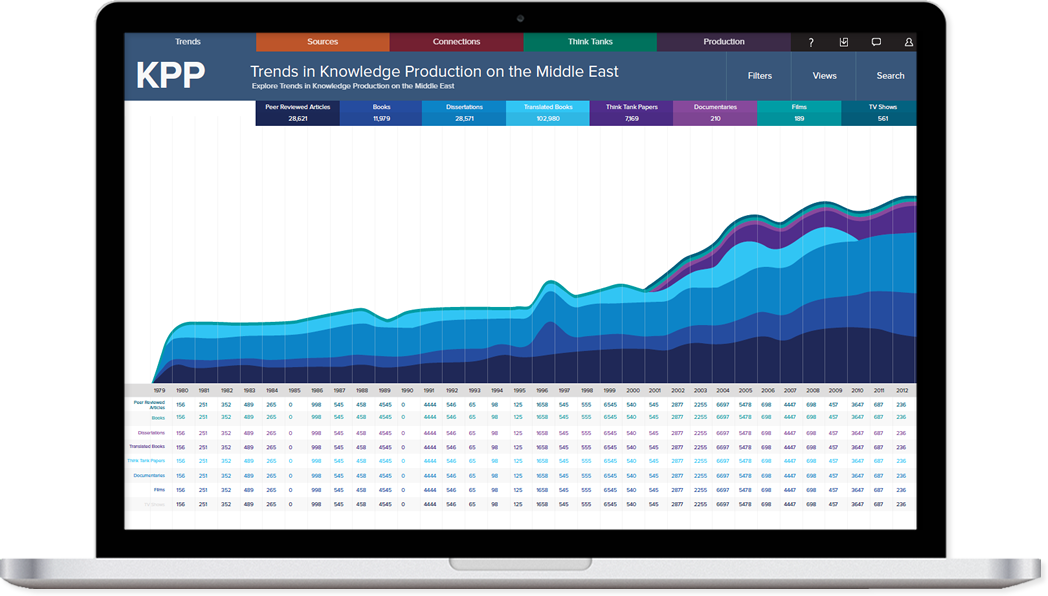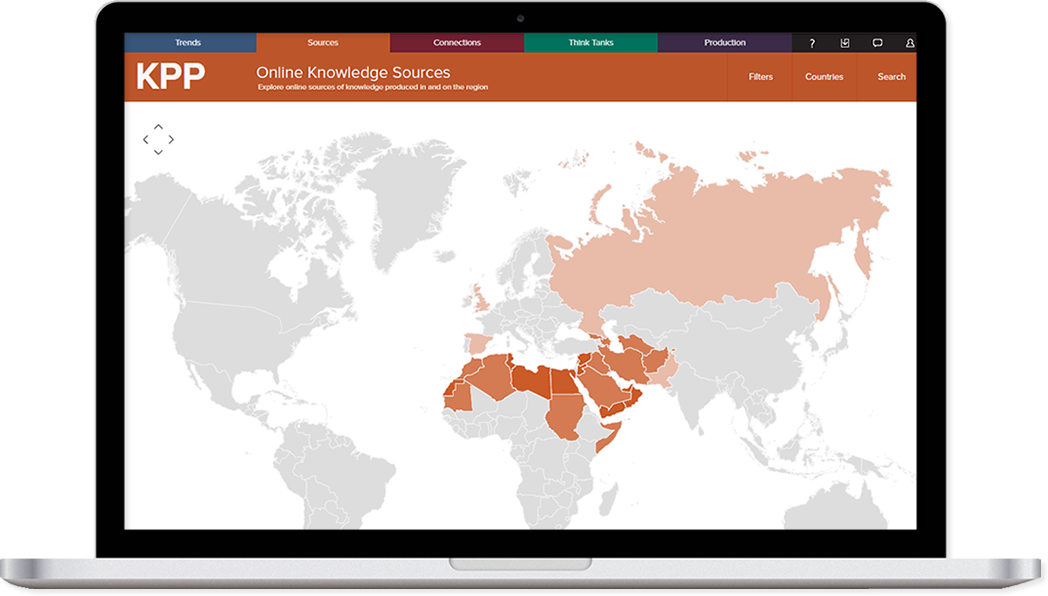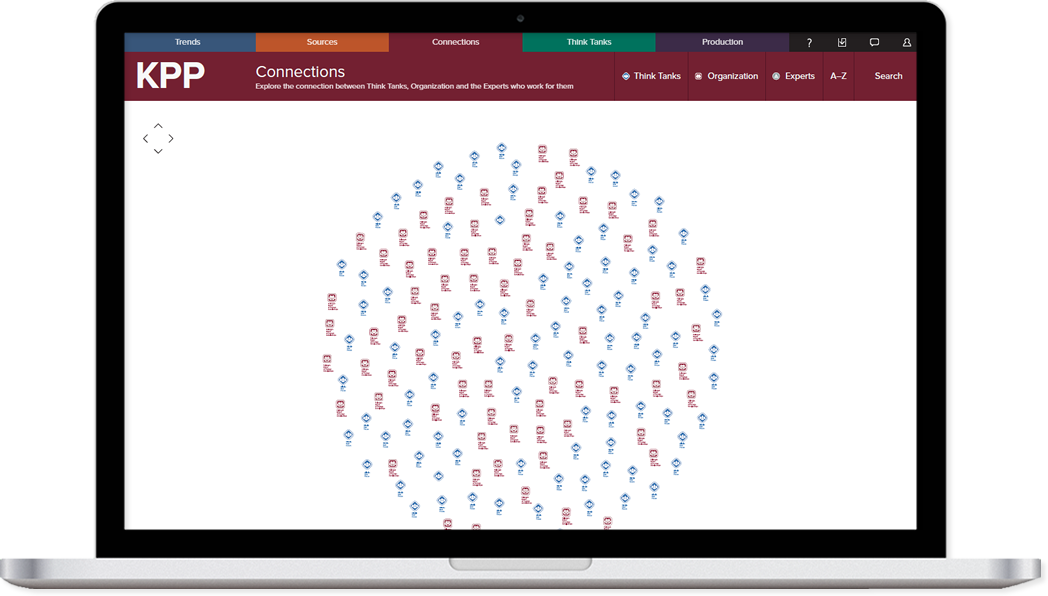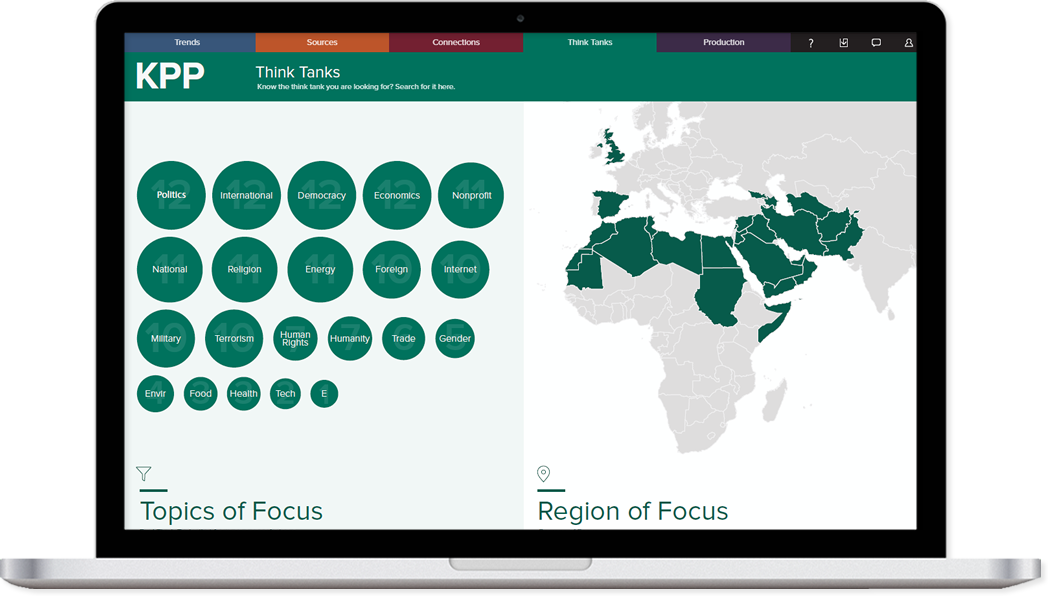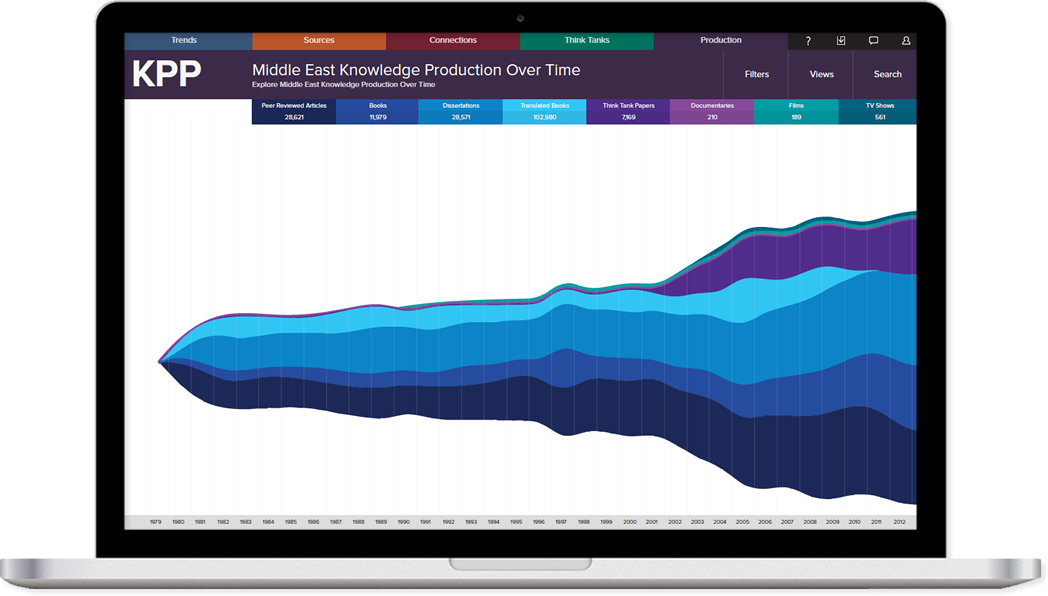Methodology
The Objective
The Online Sources of Knowledge dataset aims to provide a framework for systematically understanding the conversation about the region occurring over the Internet. The database will provide an open listing of the websites and blogs producing knowledge on the region suitable for a hosted interface or analytical software.
The Logistics
The Online Sources of Knowledge visualization is a collection of every website that produces knowledge written in English on the Middle East and North Africa since the 1990s. Since there is no systematic way of finding websites, we have used various informal methods, including, but not limited to: blogrolls, word of mouth, extensive Google searches, aggregates and media outlets. The team categorizes, or codes, these websites based on a variety of characteristics including their format and ownership.
This visualization uses a Google Drive Spreadsheet, where the rows include each entry (website or blog) along with relevant variances across the variables. Specifically, each entry includes:
1. Website URL
2. Geographic Focus: The website can focus specifically on one country in the MENA, the MENA region more broadly, or be global and have a MENA section. In some instances, there are also religion-specific websites, particularly if it directly related to MENA.
Since various websites will categorize the MENA region differently and countries included are not always consistent, we included a broad list of countries in this region in order to cover what various websites include as MENA. For example, while Pakistan and Afghanistan are considered South Asia, they were included due to geographic proximity, religion, and their inclusion on some MENA websites. For the purpose of this database, the MENA region includes the following countries:
Afghanistan Algeria Bahrain Egypt Iran
Iraq Israel Jordan Kuwait Lebanon
Libya Mauritania Morocco Oman Pakistan
Palestine Qatar Saudi Arabia South Sudan Sudan
Syria Tunisia Turkey Yemen
3. Topic of Focus
4. Country of Publication: Provided when available.
5. Knowledge Flow: Knowledge flow is categorized in several different ways. The following are the keywords used in this field and their significance.
Static: The knowledge flow is no longer updated on the website.
Dynamic: The knowledge flow is updated on a regular or fairly regular basis.
Mixed: The knowledge flow is Static in some places and updated regularly in others (i.e. a corporate website’s information may be static but a blog on it could be dynamic)
Regular: The information is updated on a regular basis (daily, weekly, monthly, quarterly)
Irregular: The information is updated, but not on a regular basis.
Inactive: The information is no longer updated on the website.
6. Format: This field lists what we classify as the format and format variety. The format variety distinguishes the source either as text, photography, or in some cases audio. The format will be Encyclopedia, Aggregate, Database, Blog, Report, Written, Summary, News or E-zine/Journal.
7. RSS feeds: Provided when available

